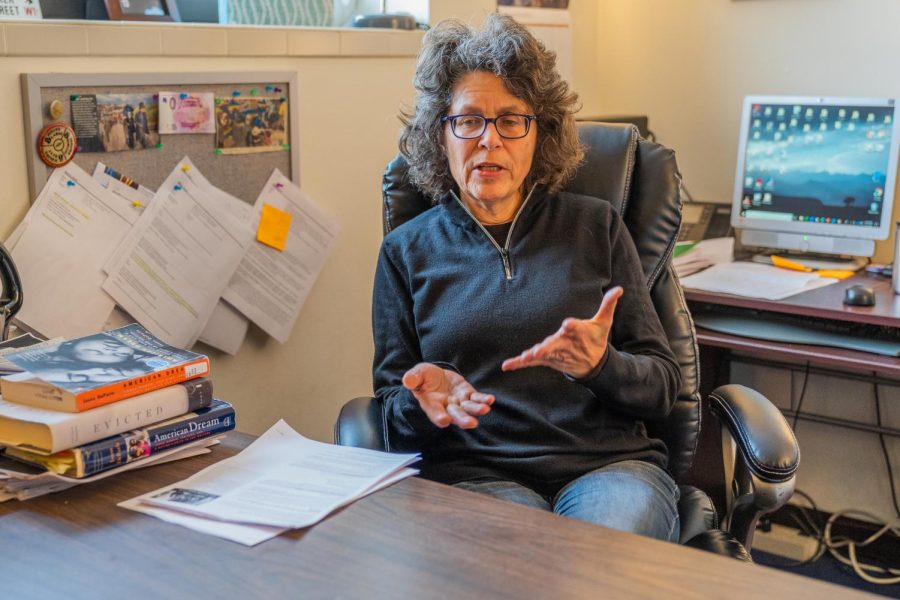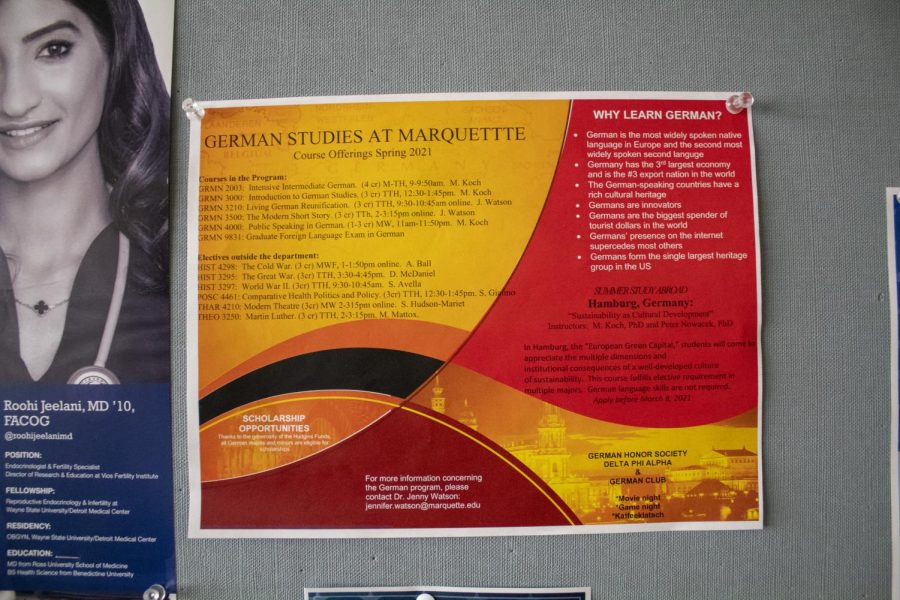In recent months, Marquette University has made efforts toward faculty concerns in direct response to feedback from non-tenure-track faculty, university spokesperson Chris Stolarski said.
Stolarski previously provided a list of efforts the university has made, which included:
• Initiating an NTT compensation study to be delivered to the provost by September
• Committing more than $10,000 in professional development funding for NTT faculty
• Holding multiple NTT social hours with the president and provost
• Evaluating criteria for cancellation fees to part-time faculty whose courses are cancelled shortly before the beginning of the term
• Reviewing and revising the university policy on multi-year contracts for NTT faculty who meet certain requirements
Stolarski said he anticipates an update regarding these developments in the near future.
However, some members of the unionization campaign said they feel these developments are not enough. NTT faculty and graduate student workers rallied last spring to ask the university for a fair process to a union.
Marquette University has not formally recognized fair process to the union formation of NTT faculty and graduate student workers, Chris Gooding, visiting assistant professor of theology, and Tom Hansberger, a lecturer in the College of Arts & Sciences, previously said.
Hansberger said by organizing for a unionization process, NTT faculty and graduate students have put these developments on the university’s agenda. He said he did not remember the university discussing these issues prior to the campaign.
“It shows the non-tenure-track faculty and grad workers the power of what we did last year, and it shows why we need to continue to do that in order to make progress,” Hansberger said.
Giamo said she also felt the developments were in response to the unionization campaign. She was also concerned that these developments are primarily top-down efforts, meaning they come from administrators.
She said a union would give the NTT faculty a more equal footing and a seat at the table where issues are being discussed.
“While we believe the best way to serve Marquette students is to work directly with our faculty without a third party, leadership has repeatedly stated that it will follow a lawful process that protects the rights of all parties, as defined by the National Labor Relations Act,” Stolarski said in an email.
The National Labor Relations Act protects the rights of employees and employers and encourages collective bargaining, according to the National Labor Relations Board.
Hansberger said that meetings with administration had not continued after May 2019. No meetings have been requested by unionization members, Susan Giamo, an adjunct associate professor of political science, said. She said previous discussions haven’t gotten very far.
Regarding the developments, Hansberger said there is a clear separation between university actions and acknowledgement of the unionization process.
“Non-tenure-track faculty and grad workers do not see their voice effective in policy as much as administration,” Hansberger said.
He said he attended a social hour with the provost and president and that another person in attendance left when they found out it was a social hour.
“A social is not going to address the needs of non-tenure-track faculty in their day-to-day lives,” Hansberger said. “What people need is stability, good contracts, health care, fair wages and a lot of other things depending on the individual cases.”
Hansberger said these types of events do not address structural problems.
Members of the unionization campaign are continuing to build support, and their concerns from the initial rallies have continued, Giamo said.
This story was written by Annie Mattea. She can be reached at anne.mattea@marquette.edu.



